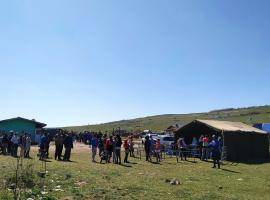The definition of the training modules’ curricula for the entrepreneurial educational programme for the cultural and creative sector involved some of Cluj Future of Work’s delivery partners. The objective of this collaboration was not only to offer an effective scheme of participatory governance for the learning activities but to strongly connect them to the most dynamic sectors and enterprise clusters of the city. This element is particularly crucial for the acceleration of the business ideas and projects to be developed by each of the 65 participants to Culturepreneurs, selected in July among 109 applicants.

From the end of September to mid-December 2020, the modules on business essentials were delivered with online classes. The topics and the contents of the modules (Management & Strategy; Marketing & Communication; Finance & Legal; System thinking & Open Innovation; Digitalisation; Artistic Thinking) were designed by the Cluj Cultural Centre and some of the delivery partners, such as the ARIES Transylvania IT Cluster and the Arts and Design University, bearing in mind traditional and innovative skills that potential entrepreneurs need to possess in order to succeed in the evolving landscape of cultural and creative industries. The dialogue among people with different backgrounds and mindsets offered a fruitful opportunity to discuss how the evolution of skills development can be crucial for influencing the future of work at local scale.
The combination between hard and soft skills is a characteristic element of the business essential modules delivered by the Culturepreneurs programme, that aims at creating a widespread culture of education to entrepreneurship in the city, that is going to settle as legacy of the project in Cluj-Napoca and stimulate new connection with the local universities.
“Knowledge transfer is already on the roll – says Mara Rațiu, vice-rector at the Arts and Design University and one of the tutors of the Culturepreneurs programme – We have already introduced in my university some elements on cultural and creative industries in my university and the objective is to give access to our masters students to the modules of the entrepreneurial programme”.
In the framework of the Culturepreneurs programme, Mara Rațiu is taking care of the module on artistic thinking, one of the soft skills that are qualifying the offer of the educational programme since it is creating bridges among different disciplines and promote lateral and creative thinking among the participants.
“We managed to stimulate the participants showing them how artistic thinking can improve the way they do business - says professor Ratiu - For instance, we asked them how they would behave like an artist to present their products or they would use artistic skills to make their products desirable. We focused on emotions, included the emotions connected to mistakes and failures. I talked them about the capacity to change and how to be resilient in order to deal with unexpected contexts. These elements coming from an artistic thinking approach help a lot”.






















